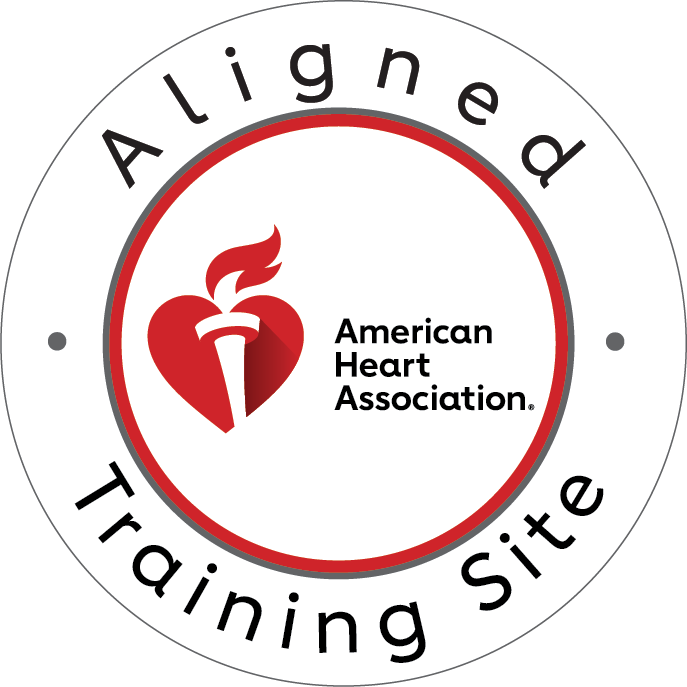What is ACLS and Why is it Important?
Advanced Cardiac Life Support (ACLS) is a crucial set of clinical interventions and skills designed to provide urgent treatment for life-threatening cardiovascular emergencies. As a critical component of emergency cardiac care, ACLS goes beyond basic life support techniques to offer more sophisticated and targeted interventions for patients experiencing cardiac arrest, acute arrhythmias, stroke, and other cardiovascular emergencies.
The primary purpose of ACLS is to improve outcomes for patients in cardiac arrest or other critical cardiac situations. By extending and enhancing basic life support techniques, ACLS equips healthcare providers with advanced skills and knowledge to manage these high-stakes scenarios effectively.
The Primary Purpose of ACLS
Improving Outcomes for Patients in Cardiac Arrest
The fundamental goal of ACLS is to increase survival rates and improve neurological outcomes for patients experiencing cardiac arrest. This is achieved through a systematic approach that combines rapid assessment, early interventions, and ongoing monitoring. ACLS protocols are designed to quickly identify and treat the underlying causes of cardiac arrest, such as ventricular fibrillation or pulseless electrical activity.
Extending Basic Life Support Techniques
While Basic Life Support (BLS) focuses on maintaining circulation and oxygenation through chest compressions and rescue breathing, ACLS takes emergency care to the next level. It incorporates advanced techniques and technologies that allow healthcare providers to deliver more targeted and effective treatments. These include:
- Advanced airway management techniques
- Interpretation of cardiac rhythms
- Administration of emergency medications
- Use of defibrillation and other electrical therapies
By building upon the foundation of BLS, ACLS provides a more comprehensive approach to managing cardiac emergencies, significantly enhancing the chances of patient survival and recovery.
Key Components of ACLS
ACLS encompasses several critical components that work together to provide comprehensive care for patients in cardiac emergencies:
Advanced Airway Management
ACLS protocols include techniques for securing and maintaining a patient’s airway beyond basic mouth-to-mouth or bag-valve-mask ventilation. This may involve:
- Endotracheal intubation
- Use of supraglottic airway devices
- Continuous waveform capnography to confirm and monitor endotracheal tube placement
Cardiac Rhythm Recognition
A cornerstone of ACLS is the ability to quickly and accurately interpret cardiac rhythms. This skill allows healthcare providers to:
- Identify life-threatening arrhythmias
- Distinguish between shockable and non-shockable rhythms
- Tailor treatments based on specific rhythm abnormalities
Pharmacological Interventions
ACLS incorporates the use of various medications to manage cardiac emergencies. Key pharmacological interventions include:
- Epinephrine for improving coronary and cerebral perfusion
- Amiodarone or lidocaine for managing ventricular arrhythmias
- Atropine for treating symptomatic bradycardia
- Adenosine for certain supraventricular tachycardias
Post-Cardiac Arrest Care
ACLS doesn’t end with the return of spontaneous circulation. It also focuses on optimizing post-arrest care to improve long-term outcomes. This includes:
- Targeted temperature management
- Hemodynamic optimization
- Identification and treatment of the underlying cause of arrest
- Neurological prognostication
These key components of ACLS work synergistically to provide a comprehensive approach to managing cardiac emergencies, significantly improving the chances of patient survival and favorable neurological outcomes.
ACLS in Various Clinical Settings
ACLS principles and protocols are applied in a variety of clinical settings, each with its unique challenges and considerations:
In-hospital Cardiac Arrests
In hospital settings, ACLS is crucial for managing cardiac emergencies that occur in patients already under medical care. Key aspects include:
- Rapid response teams trained in ACLS
- Immediate access to advanced medical equipment and medications
- Coordinated team efforts involving various hospital departments
Out-of-hospital Cardiac Arrests
ACLS is equally important in pre-hospital settings, where emergency medical services (EMS) personnel are often the first to respond to cardiac emergencies. Challenges in this setting include:
- Limited resources compared to hospital environments
- Need for quick decision-making and action in less controlled settings
- Coordination with receiving hospitals for ongoing care
Emergency Department Management
Emergency departments serve as a critical junction between pre-hospital and in-hospital care. ACLS in this setting involves:
- Rapid triage and assessment of patients with potential cardiac emergencies
- Seamless transition of care from EMS to hospital staff
- Initiation of advanced interventions and preparation for admission to intensive care units
The Role of ACLS in the Chain of Survival
ACLS plays a vital role in the “Chain of Survival,” a series of actions that, when performed quickly and effectively, can greatly increase the chances of survival from cardiac arrest:
Early Recognition and Activation of Emergency Response
While this step often precedes ACLS, proper training helps healthcare providers quickly recognize cardiac emergencies and activate appropriate responses.
High-quality CPR
ACLS builds upon the foundation of high-quality CPR, emphasizing its importance and incorporating it into more advanced interventions.
Rapid Defibrillation
ACLS protocols include the proper use of defibrillators, which is crucial for treating certain types of cardiac arrest.
Advanced Life Support and Post-arrest Care
This is where ACLS truly shines, providing the advanced interventions and post-arrest care necessary for improving long-term outcomes.
By strengthening each link in this chain, ACLS significantly enhances the overall effectiveness of emergency cardiac care.
Conclusion
Advanced Cardiac Life Support (ACLS) serves a critical purpose in emergency cardiac care. By providing healthcare professionals with advanced skills and knowledge, ACLS significantly improves patient outcomes in life-threatening cardiovascular emergencies. From enhancing basic life support techniques to incorporating advanced interventions and post-arrest care, ACLS is an essential component of the chain of survival.
The importance of ACLS cannot be overstated in today’s healthcare landscape. It equips providers with the tools to make split-second decisions, perform life-saving interventions, and work effectively as part of a resuscitation team. The benefits extend beyond individual patient care, contributing to improved overall emergency response systems and healthcare quality.
Call to Action:
For healthcare providers in the Tampa area looking to gain these crucial skills or update their certifications, CPR Classes Tampa offers top-notch training in both CPR and ACLS. As an American Heart Association-certified training site, they provide a stress-free, hands-on learning environment that ensures you’re well-prepared for real-world emergencies.
Whether you’re seeking CPR certification in Tampa or ACLS certification in Tampa, CPR Classes Tampa has you covered. Their comprehensive courses include:
- Basic Life Support (BLS) for Healthcare Providers
- Advanced Cardiac Life Support (ACLS)
- Pediatric Advanced Life Support (PALS)
- First Aid courses
By enrolling in these courses, you’ll not only fulfill certification requirements but also gain the confidence and skills needed to potentially save lives in critical situations.
Don’t wait to enhance your abilities in emergency cardiac care. Visit CPR Classes Tampa today to explore their course offerings and take the next step in your professional development. Remember, in cardiac emergencies, every second counts – and with proper ACLS training, you can make those seconds count even more.
Invest in your skills, invest in patient outcomes. Get your CPR certification in Tampa or ACLS certification in Tampa at CPR Classes Tampa – where quality training meets real-world application.





